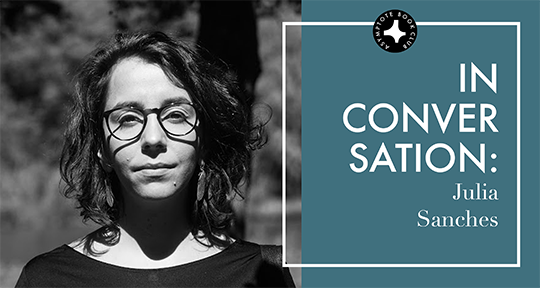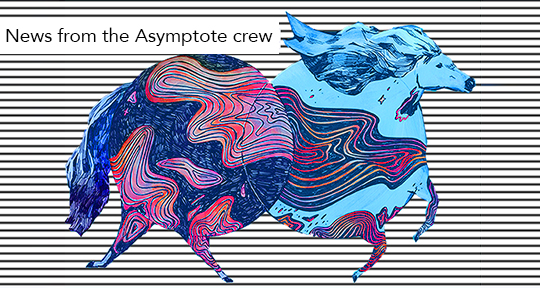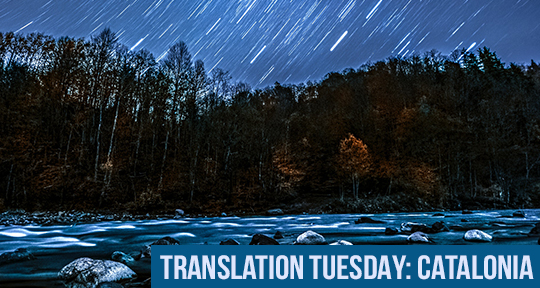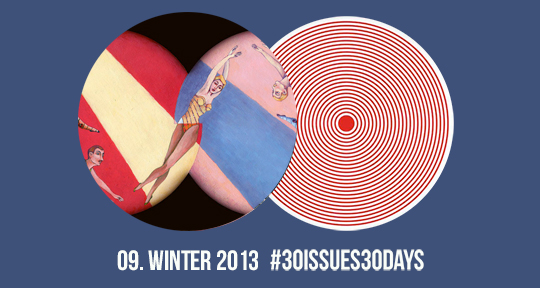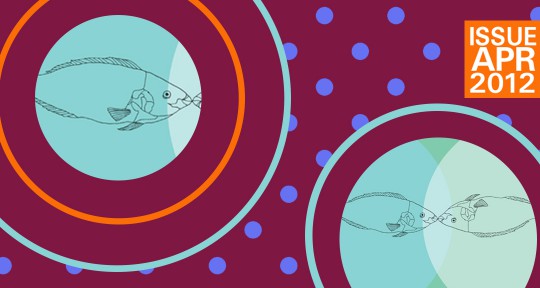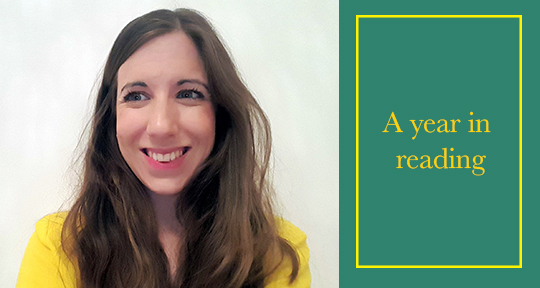In Mammoth, our Book Club selection for August, Eva Baltasar masterfully builds a sensually invigorating, intensely lucid character study of a woman that follows desire to its most extreme ends, drawing on the author’s cultivated themes of rebellion and self-liberation to lay wreckage to social norms, sexual standards, and the pretense of civility. Translated with finesse and lyric precision by her long-time English voice, Julia Sanches, the novel is by turns thrilling and disturbing, meticulously structured in its lines and its narrative; in line with Baltasar’s work as a poet, every word serves a purpose. Here, Sanches speaks to Hilary Ilkay about working with such fine prose, the necessary care taken on both linguistic and musical levels, and moving between strangeness and sense.
The Asymptote Book Club aspires to bring the best in translated fiction every month to readers around the world. You can sign up to receive next month’s selection on our website for as little as USD20 per book; once you’re a member, join our Facebook group for exclusive book club discussions and receive invitations to our members-only Zoom interviews with the author or the translator of each title.
Hilary Ilkay (HI): Mammoth is the last of Eva Baltasar’s trio of novels that reflect uniquely on motherhood and maternity—and you’ve been the translator of all three. I’m wondering how you see Mammoth fitting in with the other two, Boulder and Permafrost?
Julia Sanches (JS): I’m still working through my views on that. Eva has said in the past that Mammoth crystallizes her work in the triptych, and the more I’ve thought about the book, the more I’ve realized that their defining tension is between the societal expectations of motherhood and its instinctual, more primal side. If I’d read Boulder and not known Eva had children, I’d have found it impossible to believe that this woman—who’d written a character so allergic to motherhood—could be a mother, too. But from her position as a mother, Eva is always questioning the push and pull of norms and expectations, asking: what is motherhood for human beings as animals? And what is motherhood for human beings as part of a social fabric? I think this is what the triptych is exploring.
HI: In Baltasar’s work, I find the blurring between animal and human to be so striking—and that tone is set right from the beginning, so you see both the loss of self and the finding of oneself in that slippage. That tension, exactly as you describe it, is so alive in her novels. Did Mammoth in particular pose any unique challenges as a translator that the other two didn’t?
JS: Mammoth was slightly easier to translate because it’s the third book I’ve worked on by Eva, so I’ve become used to her style. She’s very, very controlled. The three sections of Mammoth are practically the same length, and her sentences are nearly all constructed in the same way. I had to play a little bit with the structure, because in Romance languages you can start a sentence with a verb, so the repetition of “I” doesn’t grate as much; that’s not the case in English, and I had to find a workaround.
I also struggled with some of the more agricultural terminology. Eva, who is an endlessly fascinating person, worked as a shepherd for at least one year (possibly as many as three) in the Pyrenees, and so in the novels, she uses some of the offhand language of a shepherd who knows the ins and outs of lambing, as opposed to the technical terms. The British editor and I discussed these sections in detail. For example, at some points, she refers to the sack that the lamb is birthed in as the placenta, but I thought English lay readers like myself might get confused because we have a very specific idea of what a placenta is.
While Permafrost has these intricate, paragraph-long metaphors that are difficult to unwind and render in English, Mammoth is a lot more pared down. So it was a matter of dialing things back and making sure the language remained very clear. I wanted no spare words whatsoever, and I don’t know if I succeeded in being as ascetic as I intended. It was a challenge. I am not terse by nature, so I had to go against the grain of my usual writing. READ MORE…

